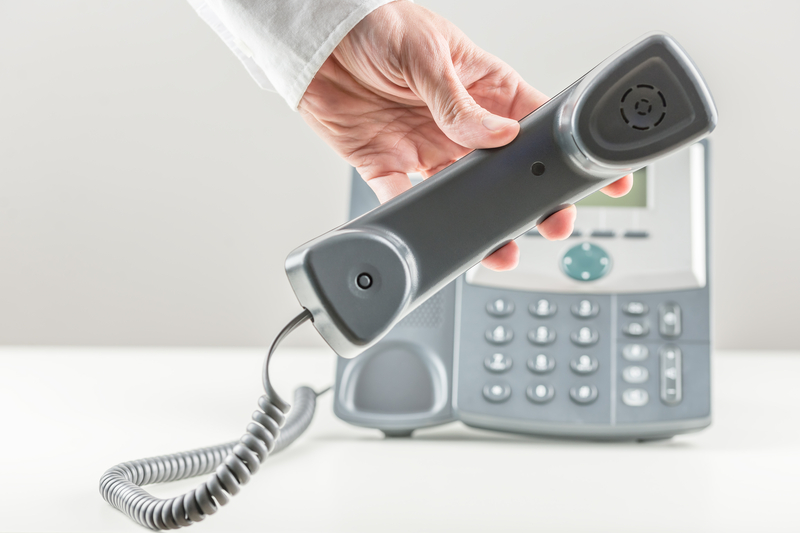Imagine someone calls your small business—but you don’t have a phone system. Imagine this individual might have a large contract to offer your business if only they could get through your routing system and talk to a person. But they can’t. The phone lines are confusing to them, the functionality is poor, and they may not even be sure they called the right phone number.
Why do you need a business phone system? Simple: to avoid situations like this, in which your business not only looks like it’s not on top of things. It may really not be on top of things.
Fortunately, you don’t have to sign up with an expensive service provider or expensive apps to get your business phone system up to par. If you handle it right, your phone system can serve you—making itself almost unnoticeable as your team becomes more productive, more communicative, and capable of handling those high-priority inbound calls.
Why Every Small Business Should Have a Business Phone System

VoIP providers (voice over internet protocol) can tremendously affect how your business runs—in a way that goes past convenient hold music or making sure your team can use hands-free headsets. It even goes beyond basic phone routing and functionality. Every small business should have a phone system because of the plethora of features on offer. Consider what phone system providers can offer over a traditional landline:
Conference call: We are increasingly in a world where conference calls for remote teams replace in-person meetings. If you want to run your business like a legitimate business—and one that can unite teams from all over the world—you need crystal-clear conference calling functionality within your system.
Call forwarding: Getting a phone call to the right person can be the difference between making a sale and not making the sale. And while call forwarding isn’t one of the advanced features you might get out of a business phone system, it is one of the most important. More importantly, you can set it up so mobile phones can take incoming calls as though everyone is in the office—even if they aren’t. This is great for mobile teams who want to use VoIP phone systems to keep the business on the same page.
Call recording: A traditional phone doesn’t handle call recording. But suppose you have essential business needs like recording phone calls or video conferencing calls for transcripts that you can repurpose as blog posts, interviews, or more. In that case, it’s an integral part of doing business. A small business phone system should be able to handle call recording easily—and make it just as easy for you to access the recordings.
Synchronizing every mobile device: Not every business will be completely on-premises. You can set it up using the auto attendant service of a small business phone system, so every cell phone is connected to the main line. Anyone calling your business will be as though they called your office and accessed a particular number there. But with call routing, you can make it so every mobile device connected with your team’s professional work will be connected and ready to go whenever important business calls.
With these elements in place, you can build a unified communications systems that enhance the customer experience, improves your call quality, and gives your business a telephone system that enters the modern age. But that still leaves one question: what can you do once you have a system like this in place?
Uses for the Best Business Phone Systems

It’s not just about having a fancy phone system—it’s about choosing the suitable types of phone systems for your office. It’s also about putting that system to work so you can improve the quality of a modern business. How does it work? Let’s look at the potential uses business owners can consider when weighing whether to opt for a great business phone system.
Offering better customer support: Ever call a big company like Microsoft or Apple and hope you got a person as soon as possible? It’s the same way for your customers. The better your cloud phone system can handle incoming calls and direct them correctly, the better your customer support will be.
On-premises / off-premises synchronization: When running a modern business, sometimes you deal with remote workers and people who won’t always come into the office. Using voice over internet protocol (VoIP)-based phone services—in which your phone calls work through an internet connection—can unify it all. This creates a seamless experience for business communications for both ends—the people calling you up and the remote workers calling in.
The appearance of a “desk phone:” Set up a toll-free number, and you can feel like a big business. One of the big reasons to have a great phone system in place has little to do with functionality, even if there’s going to be plenty of that. Some businesses want to be sure they come across as high-quality, successful companies. But what if you have two employees at the office and a team of virtual workers? It’s harder to give that impression. On the other hand, a proper phone system like a PBX (private branch exchange) system can help you make the right impression no matter who’s dialing in.
Efficient call management: What if you have a busy day, with ten customers calling and only two workers are available? A good business phone system will set up queues like a customer relationship management system (CRM) to ensure everyone feels their voice is heard. VoIP service can also outsource some of those calls to your remote workers, no matter where they are—making it easy for a virtual worker to supplement your team. The result is what sounds like analog-style success on a VoIP system. Your customers won’t know how remote your team is—they’ll know you solved their problems.
Finally, a good business phone system can easily handle issues like call transfer protocols. If you’re thinking of installing a new phone system or upgrading your current office phone system so you can enable your sales team and set them up for success, now’s the time to try VoIP business phone systems. Check out our solutions and discover just how efficient your business can be when it uses a hosted phone system for the first time.
We offer IT support, cloud services, bandwidth connectivity, and VOIP solutions to medium size businesses. Get in contact with us today!
Similar Posts
What Does IT Support Service Mean?
What is the Difference Between Speed and Bandwidth?
Why Should Your Business Move to the Cloud?
What is Spear Phishing in Cyber Security?
In-House vs Managed It Support
What is Cloud Service for Business?
Why is Data Security Important for Business?

